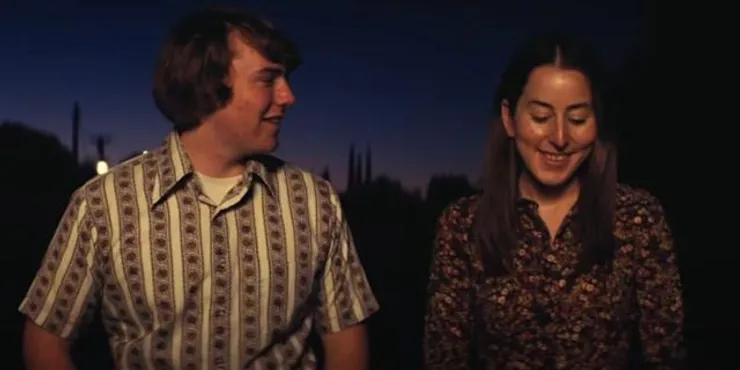Dreams (Sex, Love) (Norway, 2024)
Original title: Drømmer
Director: Dag Johan Haugerud
Screenplay: Dag Johan Haugerud
Main cast: Ella Øverbye, Selome Emnetu, Ane Dahl Torp, Anne Marit Jacobsen and Andrine Sæther
Running time: 110 minutes
Part of a trilogy whose other films I haven’t seen yet, Dreams (Sex, Love) is a film that works on its own, despite its thematic rhyme with the other works. Here, we have a coming-of-age film based on a girl, Johanne (Ella Øverbye), who falls in love with her French teacher, Johanna (Selome Emnetu). She decides to immortalize her latent feelings in words, and after a while ends up sharing the events with her grandmother, Karin (Anne Marit Jacobsen), who, in addition to seeing literary potential, also cares about the events narrated.

The greatest quality of the work is its ability to manage several discussions and feelings at the same time in a balanced way, without seeming like a patchwork quilt. While on the one hand we can understand the strength of the main character’s youthful passion and queer awakening, we can also imagine the reactions of her grandmother, an experienced woman whose adventures are no longer at their peak, feeling somewhat envious of the girl’s intense emotions. We understand the situation of the teacher, who takes in a student who seems to be in need, but at the same time we can also see the problem that fiction has in reshaping reality and generating frightened reactions to the problematic potential of some actions.
More than all of this, we can feel through the cinematographic technique the love that Johanne felt. From the lighting that always suggests a warm, comfortable and sunny spot in Johanna compared to the Scandinavian coldness, from the always pleasant indoor environments compared to the outdoors, from the choice to film several important scenes during walks, especially of Karin.
In this sense, the movie also brings up the discussion about the power of art in reviving emotions and sensations that seem impossible, such as the intensity of teenage love. The only scene that breaks the realism of the film, of Karin on the stairs, is a visual representation of the journey that fiction can take us on. It’s fortunate that this breather is taken amidst the seriousness of the subject of teenage passion.
The film never seeks an easy solution to a problem, exploring every proposed narrative line to the very last consequences. If, for example, you write a story for yourself and it ends up having an audience, does it stop being just yours and start creating ramifications in the minds of each of your readers? If this story involves other people, is it part of your responsibility to talk to those involved in order to publish it? Do they have the right to give their opinion on the narrative, since they are involved in it? All of these questions are widely discussed, giving the impression that the work is quite comprehensive in what it sets out to do.
And in this, the film makes us see a type of poetry in real life that’s very important and that ends up being left aside due to the logic of seeing our lives only through the lens of productivity. It becomes an example of the importance of art in breaking with these imposed standards.
Translation by: Renata Torres




